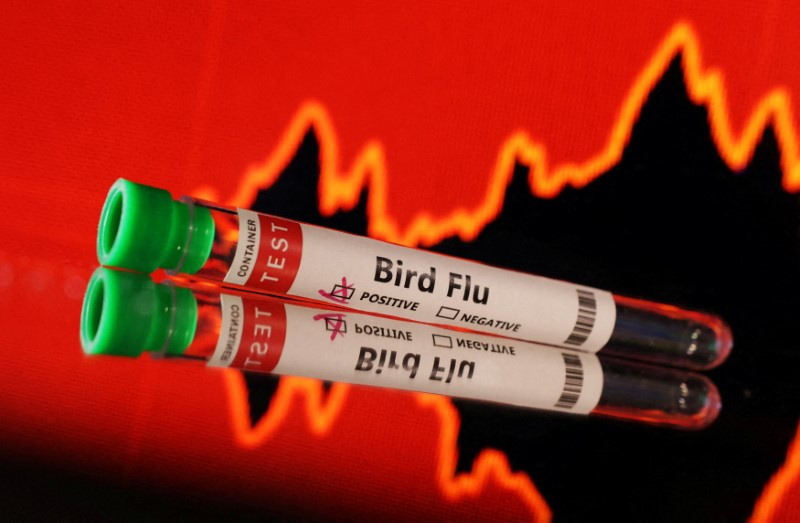By Leah Douglas
WASHINGTON (Reuters) – The U.S. Department of Agriculture said on Tuesday it will expand bird flu testing on beef entering the food supply as part of its response to the ongoing outbreak among dairy cattle. It adds that American beef and dairy products remain safe to consume. .
USDA officials said in a call with reporters and staff from other U.S. health agencies that testing will begin in mid-September and urged livestock producers to remain vigilant.
Nearly 200 flocks in 13 U.S. states have contracted bird flu since March, after the virus spread from wild birds to cows, according to USDA data.
The USDA tested 109 beef samples from dairy cows sent to slaughter in May and found particles of the bird flu virus in the tissue sample from one cow. Older dairy cattle are often slaughtered for ground beef.
The extensive testing will continue for the rest of the year and will focus on beef from dairy cows, said Emilio Esteban, USDA’s assistant secretary for food safety.
Eric Deeble, deputy undersecretary for marketing and regulatory programs, said the USDA is confident in the current level of avian flu testing being conducted by the nation’s dairy farmers.
“I think the response is adequate,” he said.
The Food and Drug Administration is talking to states about the plausibility of additional nationwide testing on raw milk, said Steve Grube, chief medical officer of the Center for Food Safety and Applied Nutrition.
Colorado introduced mandatory weekly milk testing for dairy farmers on July 22 and has since detected 10 additional positive herds in the state.
As long as the virus circulates among livestock, farmworkers will remain at risk for bird flu infections, said Nirav Shah, deputy director of the Centers for Disease Control and Prevention.

According to the CDC, 13 poultry and dairy workers have been diagnosed with bird flu since April.
The CDC is working to expand surveillance of wastewater testing for H5 viruses ahead of the fall and winter flu season, Shah said.


